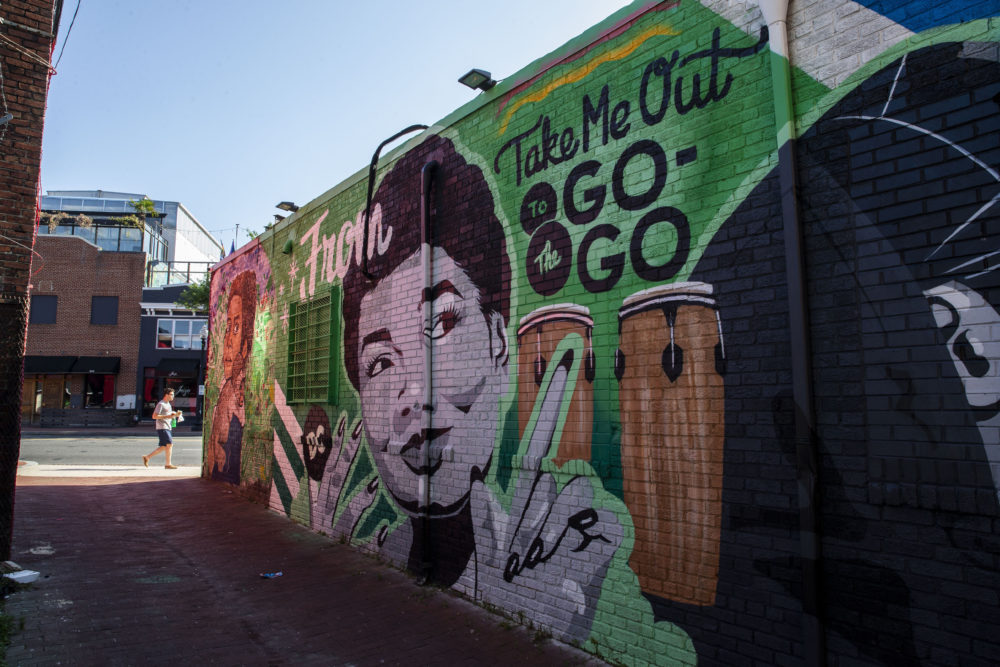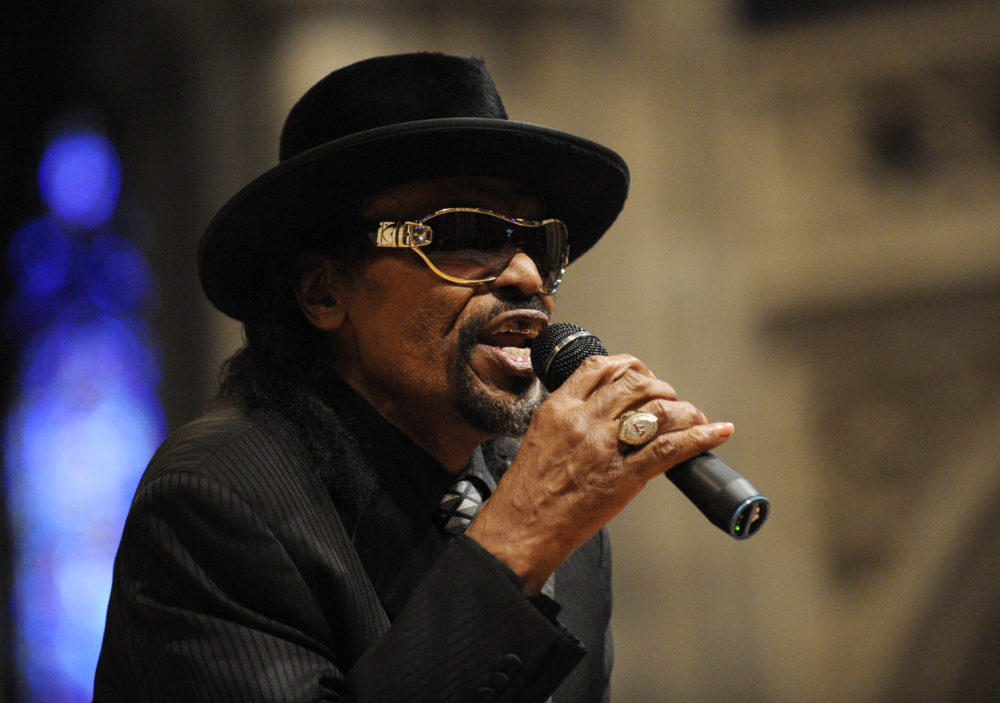Advertisement
'Don't Mute D.C.': Bill Aims To Protect Go-Go As District's Official Music
Resume
For many residents of Washington, D.C., the city's soundtrack is a percussion-heavy subgenre of funk known as go-go. Artists like the late Chuck Brown and Trouble Funk got go-go going in the 1970s, and the beat goes on in neighborhoods across the District today.
"Go-go music within itself is derived from the culture of the Washington, D.C., metropolitan area, and what it stems from is the grooves — the Afrocentric grooves — that really encompasses the mind and the soul and the body," says Nico Hobson, founder and president of GoWin Media, a D.C.-area music promotion and internet radio company.
But as the city has gentrified, the future of go-go has become uncertain — so uncertain that a city council member has offered up a bill that would make it the official music of D.C. After a contentious battle involving a local CD store, concerned residents have rallied around a hashtag: #DontMuteDC.
The movement to maintain go-go as a bedrock element of D.C. culture is beneficial for all who live in the District, Hobson tells Here & Now.
"If you went to Mexico, they have a culture that reverberates through everybody that's in that region," he says. "And so it's no different depending on what area you go to in the United States. The sound of go-go was born right here, and what makes go-go so special is that it is [an] all-encompassing music and style."
- Check out the D.C. Public Library's go-go archive
Interview Highlights
On the incident that sparked recent activism aimed at protecting go-go
"Well let me give a little clarity on how the whole situation initiated. The storefront, which is called Central Communications, which is ran by a good friend of mine, Donald Campbell, not only sells go-go PA tapes, or CDs, but it also sells mobile cellphones for T-Mobile. And that area right there really has gentrified. I'd say even 10 years ago, you would have never seen a Caucasian person walking through that area as often as you do now, which … anybody that's from the old D.C. will be thoroughly surprised at now. And so the new people that came in put in a complaint to T-Mobile, and T-Mobile asked him to mute the music, so to speak.
"So Don, he reached out to another friend of mine who I've worked with in the past, Ronald Moten, and asked for some help as far as what he should do. So Ronald ended up galvanizing a few of his friends, and they came together and a Howard University student ended up putting together a hashtag called #DontMuteDC in regards to the support of allowing Don and them to play their music freely as they had been for the last 25 years. And eventually through the uprising, they garnered 80,000 signatures in the protest — they [were] only looking for [10,000] initially."
"People that are in go-go feel part of it. So go-go is not just music. Go-go is the people, thus you got that reaction."

On how go-go music was born
"The whole purpose of it is when Chuck [Brown] was initially a cover tune band, like a lot of the bands in the city were, [and] in the midst of him playing, instead of him stopping in between songs, he wanted to keep the beat moving to keep the people on the dance floor. In between he told his drummer, who at the time was 'Sugarfoot' Ricky Wellman, to keep the beat going. Thus the term go-go. And it also was derived from the old Motown song 'Going to a Go-Go,' by Smokey Robinson and the Miracles."
On the need for people to educate themselves about neighborhoods and their respective cultures
"As the old saying says, 'Try it. You'll like it.' The old commercial. 'Try it. You'll like it.' But people, you know, are stuck in their own ways and they don't want to take in new things — and one thing when you're dealing with European attitudes is that sometimes they feel like, 'Look, we run this.' And so right now you're getting a pushback from the people that's right here in the D.C. region, and what's great about it is they're coming together on one accord for change."
Listen To Some Go-Go Music
Chris Bentley produced this interview and edited it for broadcast with Kathleen McKenna. Jack Mitchell adapted it for the web.
This segment aired on July 1, 2019.



